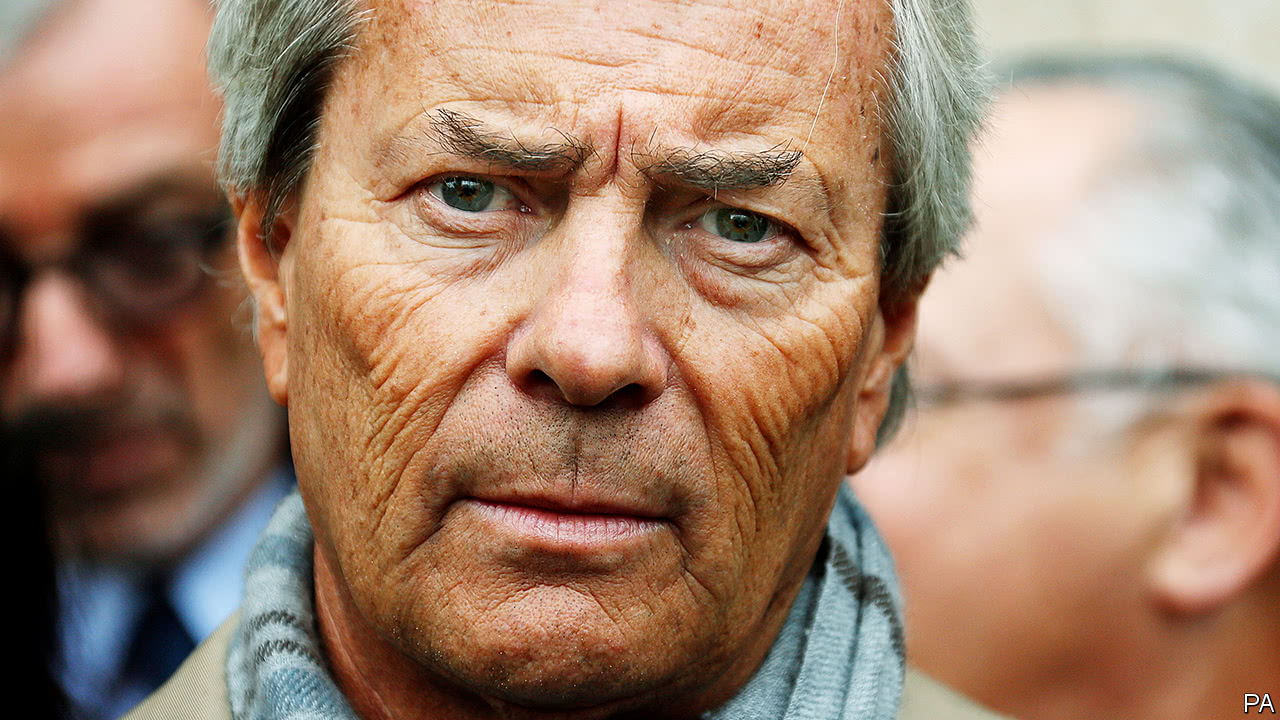
“THIS port is for the Togolese,” says Sherif Tchedre, a mechanic standing among containers that line the shorefront in Lomé, Togo’s capital. “But it is Bolloré who runs everything.” He thinks little of the port’s French operator, Bolloré Group, or the conglomerate’s eponymous owner-boss, Vincent Bolloré. They do “nothing for Togo”, he says, adding that the Frenchman is too cosy with African presidents.
The French police seem to think so, too. On April 24th they arrested Mr Bolloré and some of his firm’s senior staff in Paris on suspicion of paying bribes a decade ago to win bids to run the Lomé port and one in Conakry, in Guinea. The next day he and two others were placed under formal investigation, one step short of being charged. The authorities suspect that Havas, a communications firm that Bolloré then owned, gave African politicians heavily discounted help in their election campaigns. Mr Bolloré and Bolloré Group deny the allegations.
-
The great foreign exchange rip-off is coming to an end
-
Donald Trump’s top immigration enforcer retires
-
Scotland introduces a minimum price of 50p per unit of alcohol
-
Where will the next crisis occur?
-
Binyamin Netanyahu tries to convince Donald Trump to scuttle the Iran deal
-
The flaws of finance
Bolloré is bigger than almost any other multinational firm in Africa, where it has done business for 80 years. It operates in all but four of the continent’s countries. Its sprawling interests include 16 ports, three railways, energy, media and plantations. The logistics arm has expanded enormously over the past decade, tripling its income between 2005 and 2015.
Such heft inevitably involves close official ties. Journalists dubbed Mr Bolloré le petit prince (the little prince) in the 1990s for his prominence in Françafrique—the term for the cosy relations between the French and French-speaking African rulers. The tycoon flaunted his connections, for example by lending Nicolas Sarkozy a yacht so that the latter could celebrate his election as French president in 2007. Bolloré-owned free-sheets in France are known to dish up friendly coverage of African politicians. Two years ago Alpha Condé, Guinea’s president, told Le Monde, a French newspaper, that Mr Bolloré was a capable friend, and “I help my friends, so what?”
Episodes such as this have long made Bolloré controversial in Africa. In 2015 the firm was awarded a contract to rebuild the railway from Benin to Niger—even after it had been won by another firm, Petrolin. Bolloré was later kicked out of Benin by its new president (an act for which the firm is demanding compensation).
In Ivory Coast in 2013, Bolloré won the contract to build and run a second container terminal at the port of Abidjan. It is currently investing €400m ($487m) in the terminal. When the contract was awarded, Jean-Louis Billon, the country’s commerce minister, attacked his own government because Bolloré already ran the first terminal and part of the rationale for expanding the port was to promote competition.
The latest affair has already knocked the company: Bolloré’s shares dropped by 8% after the arrests and the announcement of the investigations. As for Mr Bolloré, “until yesterday I thought he was untouchable”, says a person who worked for an opposition figure in Guinea. French investigators made sure to stir up media interest, using the same aggressive legal procedure to detain and question him that was deployed against Mr Sarkozy in March. The former president was charged in an (apparently) unrelated case of alleged Franco-African corruption involving claims—which he denies—that Libya’s Muammar Qaddafi funnelled money to his campaign.
Trouble has also been brewing for Mr Bolloré and his empire in markets closer to home. Last week his son, Yannick Bolloré, who runs Havas, unexpectedly replaced his father as chairman of Vivendi, a big media firm that Bolloré controls. Last year Vivendi bought Havas in a manoeuvre that seemed to have “no industrial rationale”, says François Godard of Enders Analysis. The purchase makes more sense if Mr Bolloré père plans to reduce his role in the overall group.
Mr Bolloré’s strategy for his media concerns has been unclear for some years. In France Canal Plus, a once-dominant pay-TV channel, is struggling against the likes of Netflix. His attempts to seize rivals have run into trouble. In March Vivendi abandoned its year-long bid for Ubisoft, a big French maker of computer games, including “Assassin’s Creed”, a wildly popular shoot-em-up. Vivendi amassed a 27% stake before it was stymied.
At least it cashed in €1bn; Ubisoft’s market value almost doubled to nearly €9bn after the bid was announced. More troubling are Mr Bolloré’s missteps in Italy, in particular Vivendi’s grab of Telecom Italia (TI), the former state provider, and its attempt to snatch Mediaset, the country’s biggest television broadcaster, from a firm belonging to the family of Silvio Berlusconi, a former prime minister.
Talk that he would somehow create a “European Netflix”, or roll out fibre connections to rural consumers, has come to nothing. Vivendi is instead beset by both rising political opposition (Mr Berlusconi is again influential) and an attack by Elliot Advisors, an activist hedge fund set on foisting a new board on TI at a shareholder meeting on May 4th. Mr Godard judges that Mr Bolloré has “spectacularly failed” in Italy and that he—or his son—would sell TI given the chance. Along with all his headaches over Africa, he can count on little respite in Europe.
Source: economist
One of France’s best-known tycoons is arrested